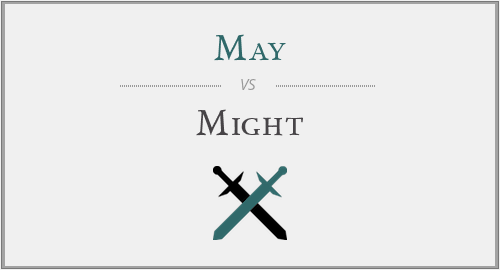May vs. Might: Navigating Modal Verbs
Understanding the differences between "may" and "might" involves recognizing variations in the usage of modal verbs. This article aims to clarify the distinctions between "may" and "might," shedding light on their meanings, applications, and appropriate usage in different contexts.
Correct Usage:
May:
"May" is a modal verb used to express permission, possibility, or a wish. It indicates that something is allowed, likely, or desired. "May" is also used to make polite requests or offer a choice.
Might:
"Might" is a modal verb used to express a weaker sense of possibility compared to "may." It suggests a lower likelihood or a more tentative situation. "Might" is often used when the probability is uncertain or when discussing hypothetical scenarios.
Meanings and Applications:
May:
Use "may" when expressing permission, stating a possibility, or making a wish. It is also suitable for making polite requests or offering choices. "May" implies a higher likelihood or a more definite sense of possibility.
Might:
Use "might" when expressing a possibility that is more uncertain or tentative. It is often used in situations where the likelihood is lower, or when discussing hypothetical or hypothetical scenarios. "Might" suggests a weaker sense of probability compared to "may."

Examples:
Correct: You may bring a friend to the party if you'd like.
Correct: It might rain later, so you may want to bring an umbrella just in case.
Contextual Considerations:
Consider the level of certainty or likelihood when choosing between "may" and "might." "May" is used for situations with a higher probability, while "might" suggests a lower or more tentative likelihood.
Conclusion:
Navigating the distinctions between "may" and "might" involves understanding their roles as modal verbs expressing different levels of possibility. Whether granting permission, indicating likelihood, or discussing hypothetical scenarios, using the appropriate term enhances clarity and precision in language use.




Have a discussion about this article with the community:
Report Comment
We're doing our best to make sure our content is useful, accurate and safe.
If by any chance you spot an inappropriate comment while navigating through our website please use this form to let us know, and we'll take care of it shortly.
Attachment
You need to be logged in to favorite.
Log In